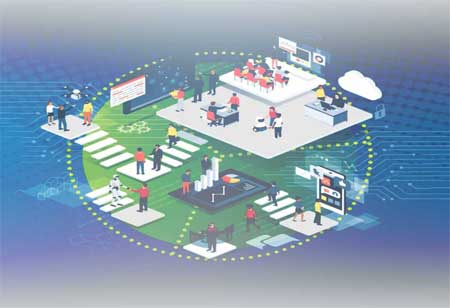THANK YOU FOR SUBSCRIBING
Trends Shaping the Future of Hospitality Tech
Over time, generative AI became less relevant in the public eye.

By
Apac CIOOutlook | Thursday, November 23, 2023
Stay ahead of the industry with exclusive feature stories on the top companies, expert insights and the latest news delivered straight to your inbox. Subscribe today.
The hospitality sector shifted towards non-room revenue streams, data-driven innovations, leveraging Gen AI and personalisation, ensuring a unique customer experience.
FREMONT, CA: Over time, generative AI became less relevant in the public eye. However, it is still an innovative technique behind the scenes. Though cautious when using new technology, the hospitality sector understands it can improve profitability, making it one of the most inventive developments since search technology first emerged.
Data Generation is Surging and is Predicted to Reach 175 Zettabytes by 2025
In today's data-driven world, enormous economic opportunities and distinctive user experiences exist that the exponential expansion of data may unlock.
Pent-up demand drove a stunning revival of meetings and group reservations in the hospitality industry in 2023. For many hoteliers, this meant a return to routine as average daily prices increased. As tourists swarm the places, the travel industry is investigating data-driven tactics to optimise ancillary income from group travel in this ever-changing post-pandemic environment.
Expect an Unpredictable Environment for the Foreseeable Future
Travel restrictions are increasingly relaxed as the APAC region recovers from the pandemic. The abolition of COVID-19 requirements before admission was postponed until September 2023, which hindered tourists' return. Although travel habits are improving in the region, uncertainty remains globally.
Growing borrowing rates continue to hurt industry profitability, and an impending real estate crisis might force more properties to become mixed-use structures with a preponderance of residential space. An unstable environment results from persistent staffing issues, economic changes, climate change, and global tensions.
Revenue Management as a Key Driver for Hoteliers
Following the recession of the early 20s and difficulties with staffing, hoteliers emphasise revenue management as a critical component. Automation and the use of technology have become essential due to the realisation of the need for efficiency.
Profitable businesses know how important it is for sales, marketing, and revenue management to have smooth data flow. It is becoming clear that greater productivity and effectiveness require this integration. Revenue management is being adopted by even smaller hotels and other lodging options, encouraging the creation of new goods that will appeal to a broader range of customers in the hospitality industry.
Unlocking Personalisation's Power Hinges on Effectively Leveraging Data
Although there has been a rapid increase in room revenues (20 to 30 per cent growth in ADR), hotels are now paying closer attention to non-room revenue streams. The hotel business has always been strong at retailing, but there has been a push to merchandise every aspect of the hotel to raise revenue from sources other than rooms. For this reason, many hoteliers are preoccupied with figuring out how to monitor ancillary earnings from group events, food and beverage, catering, and on-property services.
Hoteliers must gather more accurate data to understand their clientele better and develop sales and marketing plans. This data can help create a more compelling narrative and offer a distinctive client experience.





